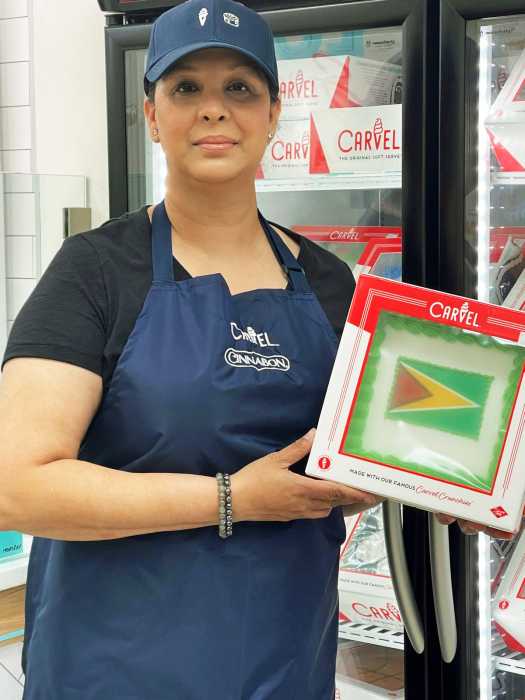New Frontier for Regional Integration
— CTU brings int’l Internet Governance School to Caribbean
Port-of-Spain, Trinidad:–
The Caribbean faces a number of complex, deep-rooted and interrelated challenges. Human resource development, economic growth, sustainable development and climate change all featured prominently on the agenda for the recently held 25th intersessional meeting of the conference of heads of government of the Caribbean Community (CARICOM).
A recurring theme in the quest to find solutions to these challenges is the role of Information and Communications Technology (ICT). Its prominence on the agenda was far from accidental. CARICOM Secretary General Ambassador Irwin LaRocque described ICT as “the new frontier for regional integration”.
The creation of a Single ICT Space within our community should be pursued vigorously in our efforts to bring technology to the people,” said LaRocque.
he regional body plans to focus over the next two years on developing a Single ICT Space as the digital layer of the CARICOM Single Market and Economy.
But history has proven that it will take more that speeches and press releases to bring this to pass.
It has been almost a quarter-century between Caricom’s 25th intersessional and its tenth meeting of Heads of Government in 1989, when the notion of a common telecommunications space was first introduced.
Bevil Wooding, an international technology expert and one of the leading ICT voices in the Caribbean, believes the time is right, but rhetoric must be matched by investment in actual doing.
“The intention (to create a single space), though noble, is long overdue. Twenty-five years later, that dream is yet to be fully realised. If the timespan is an indication of the pace with which current declaration will be pursued by the regional body, then a catalyst must be found,” Wooding said.
“The survival of the region’s economies depends on its ability leverage modern technology to produce, compete and excel in the global environment,” he added.
The work of implementing ICT development policy objectives falls largely on the Caribbean Telecommunications Union (CTU),
which plays a significant role in coordinating the region’s response to technology-related challenges. In fact, the CTU was also established 25 years ago–the same year that the World Wide Web was invented.
“The work of advancing the technology development agenda of the Caribbean region cannot be done in isolation, nor can it be done by public sector agencies alone,” cautioned Bernadette Lewis, Secretary General of the CTU.
“The implementation of the Caribbean ICT development strategy is the collective responsibility of Governments, the private sector, civil society and other organisations. The work must take place in concert with the major decisions being made on the international stage. The Caribbean must participate at this level because decisions are being made regarding the evolution of the global Internet which have serious implications for our ability to effectively leverage ICTs for development,” Lewis said.
Through extensive regional public education activities, such as its Caribbean ICT Roadshow, Caribbean Internet Governance Forum, and Strategic Ministerial Seminar series, the CTU has already established a track record of creating awareness across various sectors of Caribbean society of the importance of Internet Governance to the region.
“Making Caribbean leaders more aware of their role evolving Internet governance in the region and at a global level is a major priority,” Lewis said.
SSIG comes to Trinidad
The CTU’s new memorandum of understanding with the ICT Training Centre for Latin America and the Caribbean (CCAT-LAT) lends even more strength to that cause. The new MOU clears the ways for the CTU to introduce a five-day intensive training programme to the Caribbean that aims to improve the quality of regional representation at international gatherings.
The South School on Internet Governance, or SSIG, is a programme to prepare Caribbean and Latin American participants to actively participate in international meetings that determine the future of the Internet. The aim is to increase the level and quality of representation of Latin American and Caribbean countries at regional and international Internet Governance fora.
The Trinidad and Tobago Government, through the Ministry of Science and Technology, will be hosting the sixth edition of the SSIG. The event will take place in Hilton Hotel, Port-of-Spain, from April 28th to May 2nd. It will be the first time in its history that the SSIG will be held in the Caribbean.
“The CTU fully supports of the convening of the South School on Internet Governance in the region, as that venue gives Caribbean stakeholders greater access to benefit from the programme,” Lewis said.
With more than half of the registered participants from the region, the programme prepare participants to engage in the formulation of national, regional and international Internet policy, addressing with a special focus on Caribbean issues. Participants will hear from local, regional and international experts in a range of technology-related areas.
“The Internet is a global resource, and governing it requires a multi-stakeholder approach. That’s why SSIG participants are given an understanding of the global Internet ecosystem and its evolution,” said Dr Olga Cavalli, Director of the SSIG.
Cavalli, a Lecturer in Networking, Telecommunications and Informatics at the University of Buenos Aires, is Argentina Representativeb for ICANN and a member of Advisory Committee to the United Nations Secretary General for the global Internet Governance Forum.
Director of Institutional Relations at SSIG is Adrian Carballo, a former coordinator of the ICT Financing Group in the Strategy for the Information Society in Latin America and the Caribbean (e-LAC), coordinated by the Economic Commission for Latin America and the Caribbean (ECLAC) of the United Nations.
“The principal objective is to create a new kind of leader, one who is better equipped to represent the needs of the region,” Carballo said.
SSIG 2014 participants, drawn from the public and private sectors, civil society as well as academia, will have the opportunity to network with members of organisations such as the Latin America and Caribbean Network Information Centre (LACNIC), the Internet Society (ISOC) and the Internet Corporation for Assigned Names and Numbers (ICANN), which help to shape the future of the Internet.
Since its inauguration in 2009 in Argentina, the location of the SSIG has been rotated annually to Sao Paolo, Mexico City, Bogota and Panama City. Emily Fitzpatrick, Business Development and Research Officer at CTU, completed SSIG 2012 in Bogotá, Colombia. Initiatives like the SSIG can play an important role in fostering healthy dialogue about Internet Governance in the Caribbean, she said.
“SSIG is a diverse and safe forum where people with varying levels of expertise, knowledge and capacity can have meaningful dialogue. The real beauty of SSIG is the ability to sit in small groups with colleagues converse and reflect on the flow of information coming from the presenters. The cross-pollination that takes place in that forum is healthy and needed in the region.”
Selected SSIG sessions will be livestreamed online and open to remote participation in Spanish and English.
Full course details are available on the official SSIG website: www.gobernanzainternet.org and on the CTU’s official website, www.ctu.int.


























